The quantification of mature T cell subsets is an important prognostic marker for understanding disease. Killer T cells and Helper T cells, characterized by the expression of cell surface marker proteins CD8 or CD4, respectively, effect different aspects of the adaptive immune system, and the ratio of these two populations can reveal important information about the state of the immune system. In a manuscript published recently in the Journal of Immunological Methods, ITN researchers worked with Adaptive Biotechnologies to conduct high-throughput deep sequencing of T cell receptors (TCRs) using their ImmunoSEQTM platform.
Receptors on mature T cell subsets contain highly variable binding regions which are selected for during their maturation process and confer different properties specific to that T cell’s function, whether a Helper or Killer T cell, and determine the antigens they bind. The goal of this research was to examine whether differences in these receptor binding regions can discriminate the two cell populations. The authors were able to effectively and accurately quantify the ratio of CD4 to CD8 T cell populations from both healthy subjects and patients with multiple sclerosis using the sequencing technology. This technique promises to offer a better understanding of how diversity in the TCR repertoire correlates with health outcomes.
